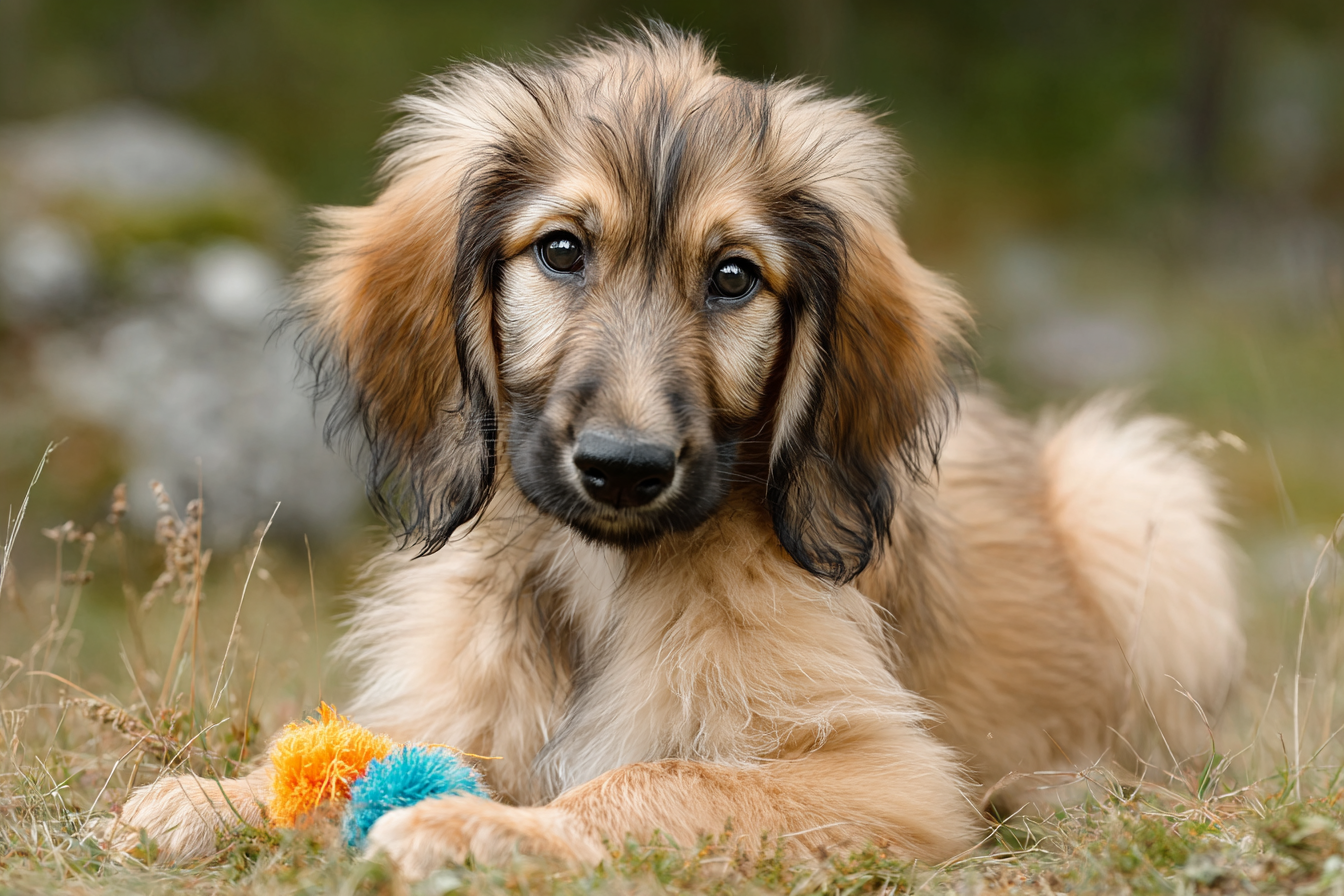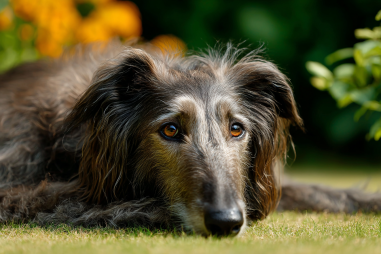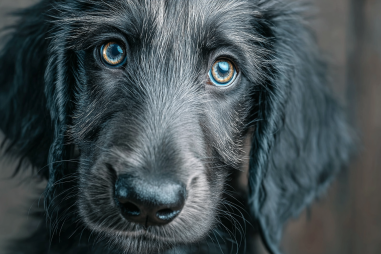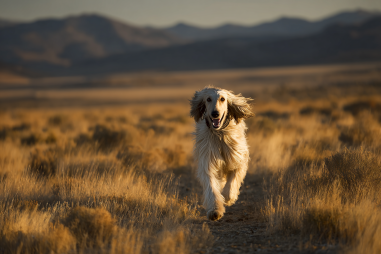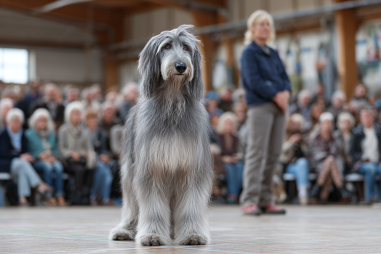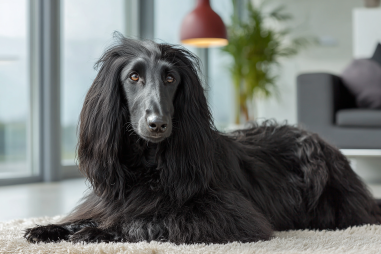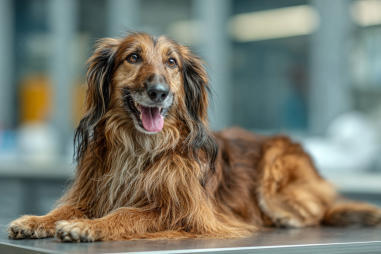Welcoming an Afghan Hound puppy into your home is a truly special experience. Known for their elegant appearance and dignified demeanor, Afghan Hounds make wonderful companions. However, their unique characteristics and specific care requirements mean that new owners should be well-prepared to give their puppy the best start in life. This comprehensive guide walks you through everything from preparing your home and nutritional needs to training tips and health care essentials, ensuring your Afghan Hound puppy grows up to be a happy, healthy, and well-adjusted dog.
Preparing Your Home for an Afghan Hound Puppy
Before your Afghan Hound puppy arrives, it’s important to create a safe and welcoming environment. This breed is known for its curious and sometimes independent nature, so puppy-proofing your home is essential to prevent accidents or damage. Afghan Hounds have long flowing coats that can easily pick up dirt, so designate a specific area for them to settle in, ideally with easy-to-clean flooring.
Gather the necessary supplies including a comfortable crate or bed, food and water bowls, chew toys to keep your puppy entertained, and grooming tools. Afghan Hound puppies can have a lot of energy, so providing stimulating toys and safe spaces for play can prevent boredom. Also, consider where your puppy will rest and sleep—consistency in their sleeping area helps with training and comfort. Make sure this quiet area is free from drafts and loud noises.
Feeding and Nutrition Requirements
Proper nutrition is vital to your Afghan Hound puppy’s growth and development. High-quality puppy food formulated for medium to large breeds is recommended, as Afghan Hounds can be sensitive to poor-quality diets. Look for foods rich in protein to support muscle development and balanced fats to maintain their skin and coat health.
Feeding portions and frequency should be tailored to your puppy’s age, weight, and activity level. Typically, puppies require three to four smaller meals throughout the day to maintain energy levels. Avoid overfeeding, as Afghan Hounds have a slender frame and can be prone to obesity if not monitored carefully.
Fresh water should always be available, and it’s a good idea to discuss supplementation with your vet; some puppies benefit from added vitamins or supplements that support joint health and coat condition. Additionally, avoid feeding your puppy human foods that can be toxic, such as chocolate, grapes, onions, and anything high in fat or salt.
Early Socialization and Training Basics
Socialization is one of the most crucial aspects of raising an Afghan Hound puppy. Because this breed can be both independent and reserved, early exposure to different people, environments, and other animals helps them develop confidence and reduce shyness or anxiety in unfamiliar situations.
Begin socializing your puppy gradually from 8 weeks old, introducing them to new sounds, sights, and gentle handling. Puppy classes are an excellent way to provide structured socialization alongside basic obedience training.
Afghan Hounds are intelligent but can have a stubborn streak, so positive reinforcement methods work best. Use treats, praise, and play as rewards while avoiding harsh corrections, which can damage their trust and willingness to cooperate. Start with simple commands like “sit,” “stay,” and “come,” and be patient during house training—consistency and routine are key. Keep training sessions short and fun to hold your puppy’s attention and build a strong bond.
Health Checks and Vaccination Schedule
Regular veterinary care is essential to monitor your Afghan Hound puppy’s health and catch potential issues early. Upon bringing your puppy home, schedule a wellness check with your vet to establish a health baseline and discuss a vaccination plan.
Puppies require a series of core vaccinations at 6 to 8 weeks, then every 3 to 4 weeks until they are about 16 weeks old. These vaccines protect against diseases like parvovirus, distemper, and rabies. Your vet will also advise on optional vaccinations based on your location and lifestyle.
In addition to vaccinations, the vet will check for parasites, common congenital issues, and overall development. It’s also a good time to discuss spaying or neutering options and microchipping for identification. Regular health checks throughout puppyhood help ensure your Afghan Hound grows strong and healthy.
Grooming Routines for Puppies
One of the most distinctive traits of the Afghan Hound is its long, silky coat, which requires regular grooming from puppyhood to keep it in top condition. Start grooming sessions early to help your puppy get comfortable with the process.
- Brushing: Daily brushing with a pin brush is recommended to prevent tangles and mats. Use gentle strokes and be patient to avoid discomfort.
- Bathing: Bathe your puppy every 2 to 3 weeks or as needed using gentle dog shampoo formulated for sensitive skin.
- Trimming: Trim nails regularly to avoid overgrowth, which can cause discomfort.
- Ear Care: Afghan Hounds have long floppy ears prone to infections; clean them weekly with vet-approved products.
- Dental Hygiene: Start brushing your puppy’s teeth early to promote good oral health and prevent dental diseases.
Establishing a grooming routine early encourages cooperation and makes maintenance easier as your Afghan Hound matures.
Exercise Needs to Support Development
Afghan Hound puppies have moderate to high energy levels and require regular exercise to stay healthy and happy. However, their bones and joints are developing, so avoid intense or high-impact activities until they are fully grown (usually 12 to 18 months).
Daily exercise should include:
- Short, gentle walks on a leash
- Play sessions in a secure, fenced area
- Mental stimulation activities such as puzzle toys or obedience games
Adequate exercise helps prevent behavioral problems stemming from boredom and keeps your pup fit. Afghan Hounds are natural runners with a strong prey drive, so always keep them on a leash or in a safe enclosure when outdoors.
Common Health Concerns in Puppies
While generally healthy, Afghan Hound puppies can be prone to some breed-specific health issues. Being aware of these helps you monitor your puppy’s condition and seek veterinary care promptly if needed.
- Hip Dysplasia: A genetic condition affecting hip joint development, leading to arthritis or lameness. Maintaining a healthy weight and avoiding excessive impact activities during growth can help minimize risks.
- Hypothyroidism: A condition where the thyroid gland underperforms, causing lethargy and coat problems. Early diagnosis is manageable with medication.
- Cataracts: Afghan Hounds are prone to eye conditions that can affect vision. Regular eye checks are important.
- Skin Issues: Their fine coat and skin can be sensitive; keep an eye out for irritation or hotspots and manage flea prevention diligently.
Regular vet visits and responsible breeding help reduce these risks. Always consult your vet if you notice unusual symptoms or changes in behavior.
Building a Loving Relationship with Your Afghan Hound Puppy
Raising an Afghan Hound puppy is a rewarding journey that requires patience, consistency, and lots of love. By providing proper care, nutrition, training, and socialization, you set the foundation for a lifelong bond. Afghan Hounds respond beautifully to gentle guidance and thrive in a calm, nurturing environment where they feel secure.
Spend quality time with your puppy every day, engage in play, grooming, and training sessions that strengthen your connection. Celebrate milestones and enjoy discovering your Afghan Hound’s unique personality and quirks. With attention and affection, your puppy will grow into an elegant and loyal companion who brings joy for many years to come.

